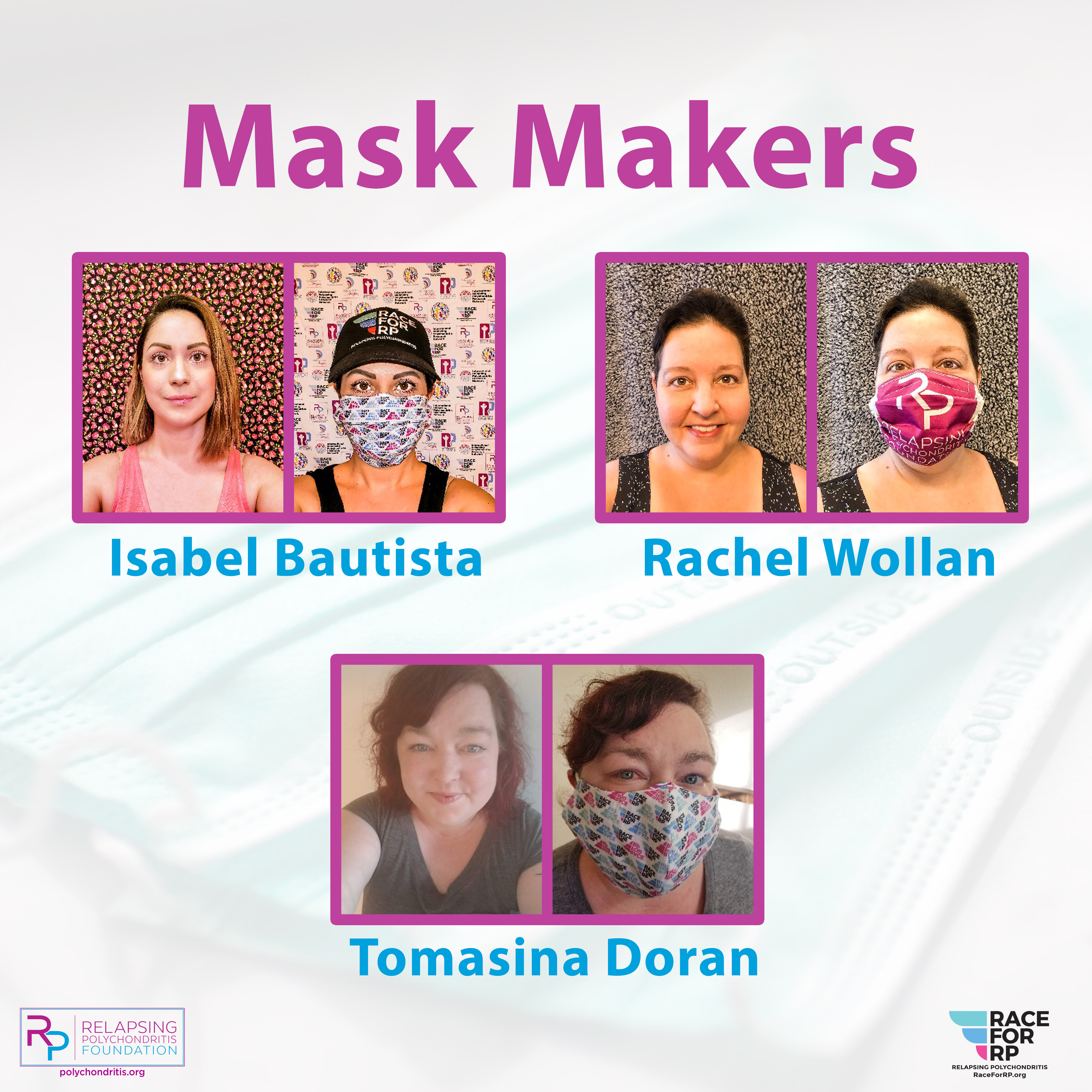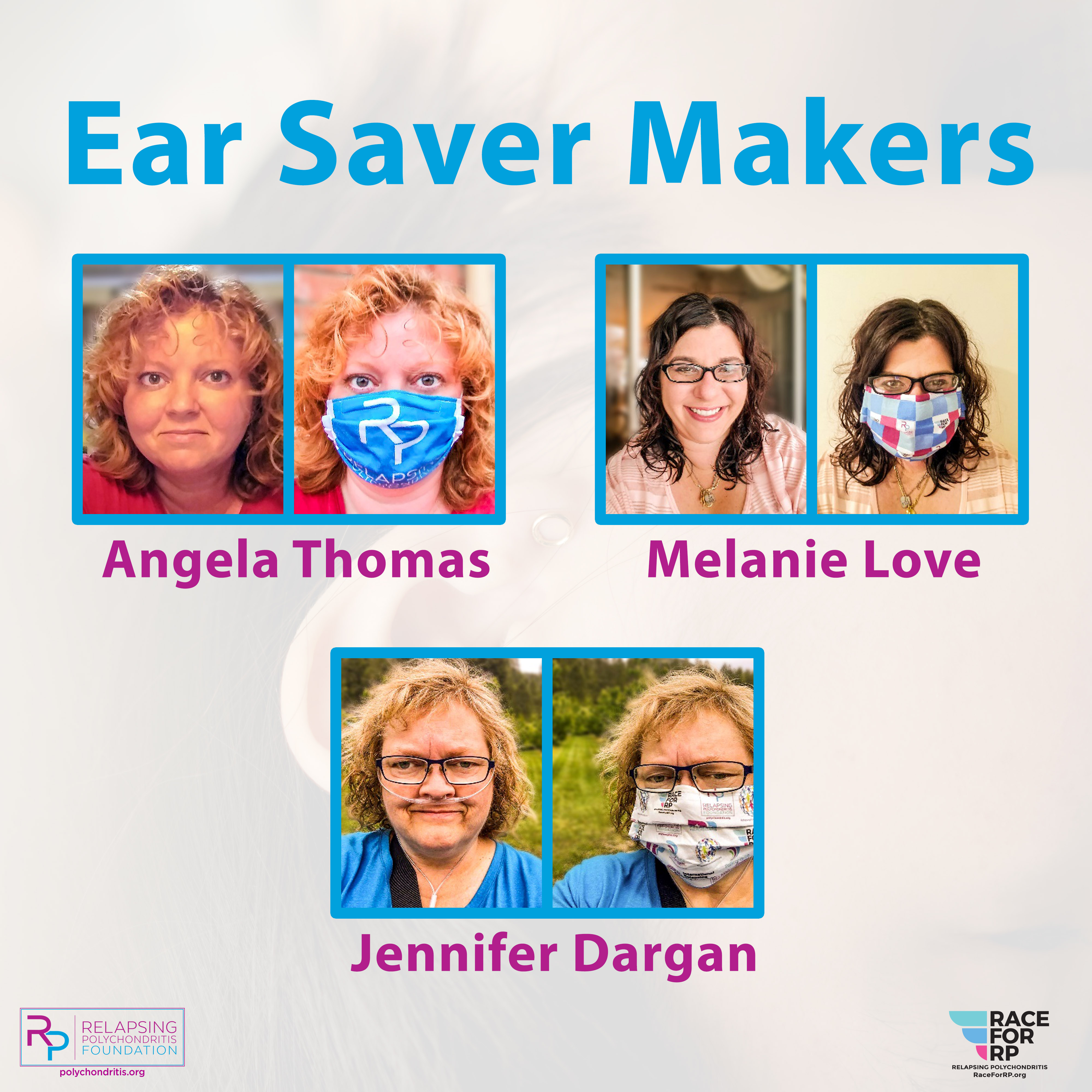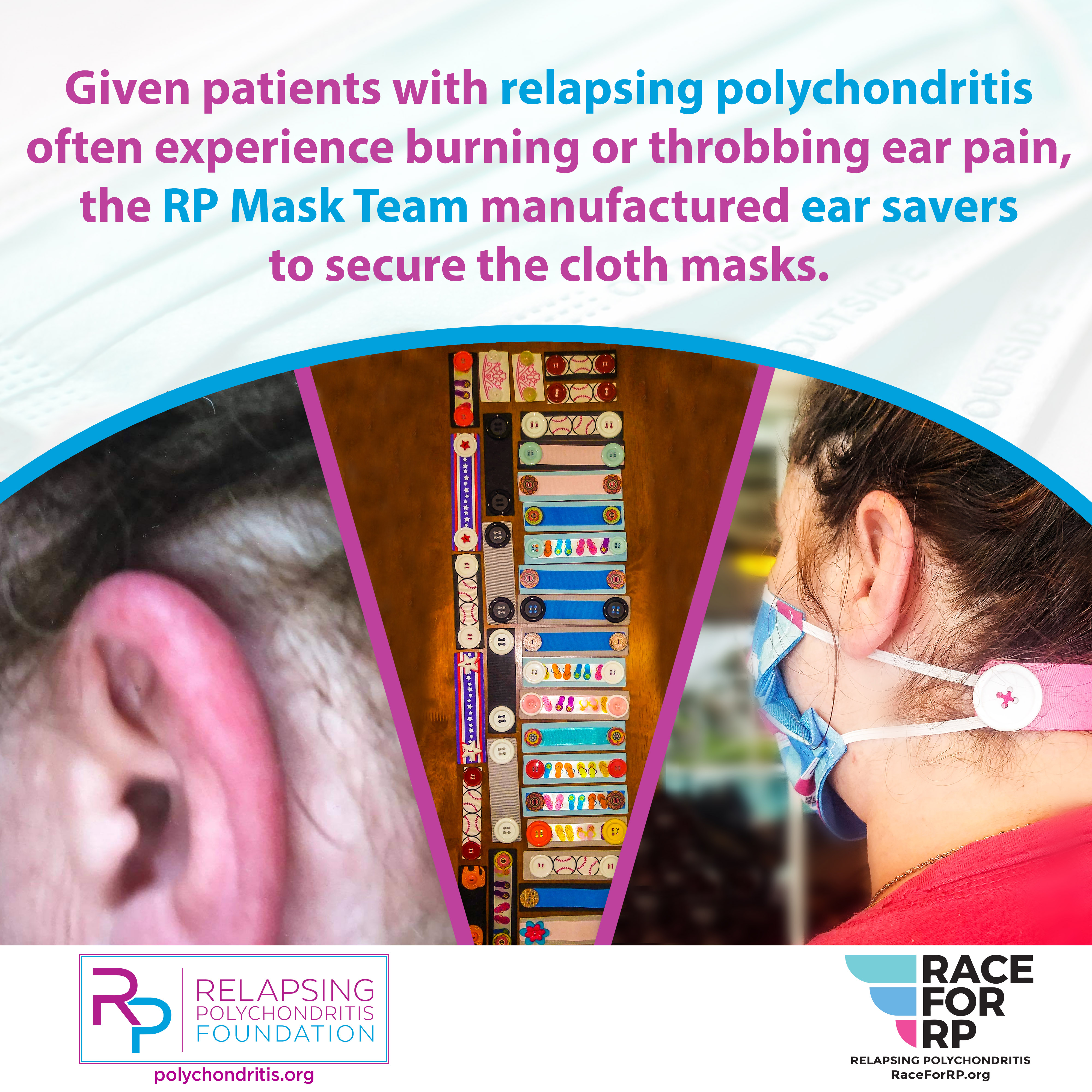Session Information
Date: Sunday, November 8, 2020
Session Type: Patient Perspectives
Session Time: 12:00PM-1:00PM
Background/Purpose: In 2013, I was diagnosed with Relapsing Polychondritis (“RP”), a systemic inflammatory disease of unknown etiology that can be fatal. The disease affects multiple organs, particularly cartilaginous structures such as the ears, nose, airway, and joints as well as eyes, skin, vasculature, heart valves, and brain.
After my diagnosis, I joined a private online support group (the “RP Support Group”) to connect with other RP patients and gain a sense of empowerment and hope regarding this rare, debilitating disease.
Intervention:
In April 2020, a member of the RP Support Group posted an inquiry asking her peers if the group could have masks created to protect our community from COVID-19. Soon after, the inquirer and five other members volunteered to donate their time and materials to make cloth masks and ear savers for RP patients, and together, became known as the “RP Mask Team.”
The RP Mask Team received outstanding support from its community. Initially, we planned to work with the materials we had on hand. However, when the RP Foundation (polychondritis.org) and Race for RP (RaceForRP.org) donated custom fabric, the scope of the project grew and became an international disease awareness campaign. With funding from individual donors, the RP Mask Team was able to provide high-quality, handmade cloth masks “free of charge” to each RP patient who requested one, regardless of their geographical location.
Maintenance:
With individual and institutional support, the RP Mask Team produced and shipped well over 300 masks and ear savers to patients throughout the United States, Canada, United Kingdom, France, Austria, Romania, Germany, Netherlands, Australia, and New Zealand.
Our “one of a kind” masks positively impacted international RP communities by combating the spread of COVID-19, while uniting patients, raising morale, increasing awareness of RP, and demonstrating success through collaboration.
The mask project also facilitated research. When posting information about the project, the RP Mask Team encouraged participation in the National Institutes of Health Patient Reported Symptoms Survey and a COVID-19 Patient Research Project being conducted with support from the Vasculitis Foundation, Vasculitis Clinical Research Consortium, and the RP Foundation.
Quality of Life:
Having a rare disease is often extremely difficult and disheartening. Prior to the RP mask project, I was extremely stressed and had a sense of hopelessness because of COVID-19. I was especially concerned about how the pandemic would impact people with an autoimmune disease, like myself.
The RP mask project changed my perspective. It gave me a sense of purpose, created unity among the international RP communities, increased awareness about my disease, gave me an opportunity to help advance research, and perhaps most importantly, created hope. When I follow the #RPmaskteam, I see photos of other patients proudly wearing their custom RP masks increasing awareness, and this fills me with joy. When I wear my RP mask, I feel proud, strong, heard, and noticed. I believe that our custom masks give the RP community one voice that says, “we are strong, and we will triumph over relapsing polychondritis.”
Disclosure: I. Bautista, None; M. Linn, None.
To cite this abstract in AMA style:
Bautista I, Linn M. Patients with Relapsing Polychondritis (“RP”) and an Advocate Manufactured Custom Cloth Masks to Combat COVID-19: This Mask Project Provided a Sense of Purpose, Created Unity, Increased Awareness of RP, Facilitated Research, and Generated Hope [abstract]. Arthritis Rheumatol. 2020; 72 (suppl 10). https://acrabstracts.org/abstract/patients-with-relapsing-polychondritis-rp-and-an-advocate-manufactured-custom-cloth-masks-to-combat-covid-19-this-mask-project-provided-a-sense-of-purpose-created-unity-increased-awareness-of/. Accessed .« Back to ACR Convergence 2020
ACR Meeting Abstracts - https://acrabstracts.org/abstract/patients-with-relapsing-polychondritis-rp-and-an-advocate-manufactured-custom-cloth-masks-to-combat-covid-19-this-mask-project-provided-a-sense-of-purpose-created-unity-increased-awareness-of/



